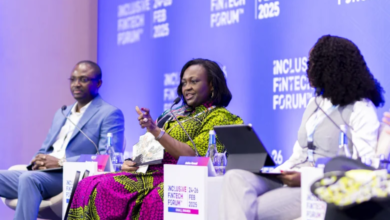Founded in 2008 with 600 to 700 million transactions of 4 billion Euros per year, Wari is undeniably the top employer in Senegal. Kabirou Mbodji, CEO at Wari reveals the key reasons for this success.
Interview:
ANA: Since its launch in 2008, Wari is a revolution in the market of bank transfer. Did you expect such a success?
Kabirou Mbodji: When we launched Wari, we knew that we put something new in the market to meet expectations. The idea started with a Pan-African platform before its globalisation. The focus was on people’s mobility rather than mobile phones. People move a lot to fetch money, make payments etc … I had to find ways to reduce travels related to financial services.
How do you see the emergence of network operators in mobile money?
We are against the fact that phone companies offer financial services, since they have a state monopoly in their field. They cannot play judge and jury. In Asia, for instance, even in Nigeria, it is forbidden to a phone operator to offer financial services, directly or indirectly, because of the concept of state monopoly. Today, even the banks are in danger since a telecom operator that interconnects these banks can have fun, for purposes of competition, and create failures in the systems.
Do you consider it a mistake of the Central Bank to allow telecom operators to intervene in this market?
Yes, it’s an error in the current system. This could be tolerated if there were, on the other side, the same offers to all players.
What are the interactions between Wari, the providers and the bank?
It is very simple. As I told you, the bank is in the middle of the system. Wari rents to the bank its platform, its brand and services allowing it to offer all services, including its own services. So it’s really a collegial supply. Wari points of sale become bank machines. It is a system without risks since all transactions are prepaid. There is no system in the world, neither Visa nor MasterCard, which offers the security we offer.
What is the social value of Wari today?
Today, Wari represents 27 000 points of sale in Senegal as well as 18 500 jobs created. Between 50 and 200 people come every day, seeking for a job opportunity since we offer incomes higher than official incomes. This makes us the largest employer in the country. The second thing we are very proud of is our contribution to productivity by saving time. We have not invented anything. The transactions Wari platform offers already existed, but in an informal way, with no traceability and transparency .With our platform, we made these transactions transparent, contributing to the tax base.
What is the gain of the state for each transaction?
The state earns 1.7% in each transaction.
What is the annual volume of transactions on the Wari platform?
Wari is more than one million transactions per day, which is, roughly, a thirty or forty million transactions in a month and between 600 and 700 million transactions a year. Even if Visa is more than 4.6 billion transactions a year, this is not important for us .What matters is how many Senegalese use Wari, and they are very numerous.
How do the banks perceive you? Do they feel threatened in their activity by your financial services?
Today we have 107 banks that are connected to our platform. Those that might be worried are the ones who do not understand what we do. Fortunately, almost all of the banks we work with have understood the usefulness of the platform and the services we provide. The current banking system does not correspond to the economic and cultural structure of our populations. This is what Wari is trying to correct by turning the traditional financial services to a financial service understood and used by all.
By Mouhamed Camara






